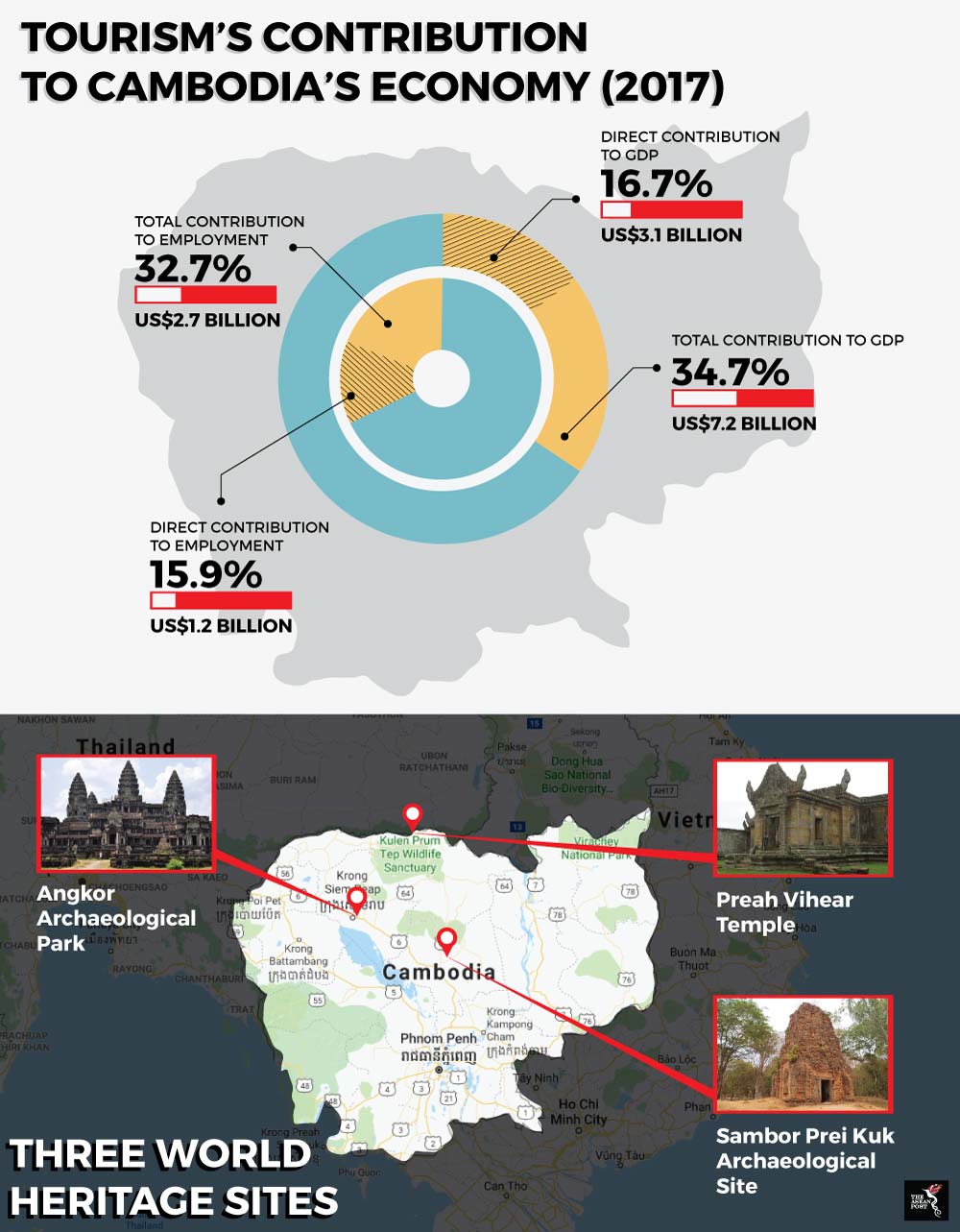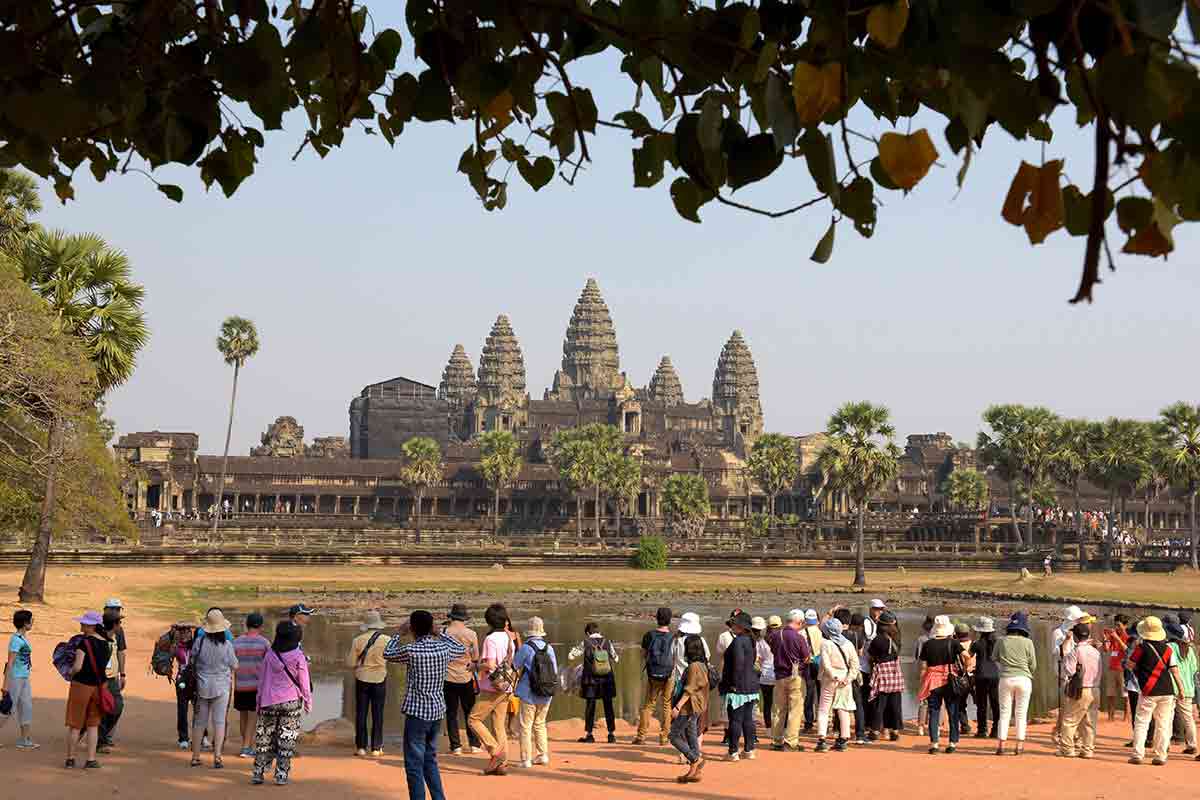A van arrives at Angkor Wat Temple and deposits its load of foreigners who make their way to the World Heritage Site. Noticeably absent among them is a local guide. The tourists brought their own guide, a handheld device that can speak up to 14 languages.
Developed by local company Angkor Audio, the device enables foreign tourists the luxury of wandering the ancient site at their own leisure without being harried and rushed along by local guides. This has raised concerns among tour guides about their livelihood.
The devices may be rented by tourists or travel agents for US$2.99 for the first month of use. There are 30,000 sets of these devices currently undergoing tests. Ironically, Angkor Audio also rents out group tour systems, a portable broadcast system that lets tour guides communicate with their guests over wireless headsets. Like the group tour systems, the Angkor App is an extension of its conference equipment rental business.
Angkor Audio operation manager, Ny Nou Ros said the app actually complements the industry. Tourist groups and some individuals prefer human tour guides, while “a few thousand more” prefer to be on their own. “We are offering them an option,” he said.
Electronic audio guides are not new to the tourism industry or even Cambodia. They existed for many years without affecting local tour guides as most of them are employed by travel agencies for group tours, Ros said.
Mobile phones changed the game further, using GPS, Bluetooth and scanning technology, to provide more specific, targeted and interactive information to visitors.
The Angkor App, released in December 2016 on iOS and Android, does just that. It replicates a live tour guide’s route through the temple, with an interactive map, photo images and 15 videos. Proceeds from the sales of this US$4 app go to a Cambodian NGO for children, Anjali House. More historical sites may follow.
 Source: World Travel & Tourism Council
Source: World Travel & Tourism Council
To cope with technological disruptions, local tour guides need to adapt fast. They can no longer rely on just leading visitors to historic sites and telling stories.
“Tourism is now more about rejuvenation, adventure, fulfilment, learning new skills and ‘being more of who you are’ than just ticking off places and things, and flopping in the sun,” said Justin Francis, CEO and co-founder of Responsible Travel.
“Experiential travel means getting access to other people’s cultures, ways of life, food and environments,” he added. “This trend explains why Airbnb is keen to position itself as ‘belonging’ or experiencing a place ‘like a local’.”
Local guides can differentiate themselves in areas where phone apps cannot replicate. This includes providing personalised services and private tours without the rush, organising experiential tours, or going off the beaten track.
Not every traveller wants to go the do-it-yourself route and good customer service is key. Popular tour guides often receive glowing reviews by satisfied customers at travel sites such as TripAdvisor. Angkor Audio is also developing a Tour Guide Booking app to help tourists and travel agencies hire tour guides.
Tourism is one of four sectors supporting the Cambodian economy, said Kong Sopheareak, director of the Tourism Ministry’s statistics and planning department. Last year, international tourist arrivals grew 11.8 percent to 5.6 million, with the biggest arrivals from China, Vietnam and Lao PDR.
The tourism industry directly contributes US$3.1 billion or 14.1 percent to the country’s gross domestic product (GDP). It is projected to reach US$5.8 billion in 2028. Tourism’s direct contribution to employment is valued at US$1.2 billion by the World Travel and Tourism Council.
